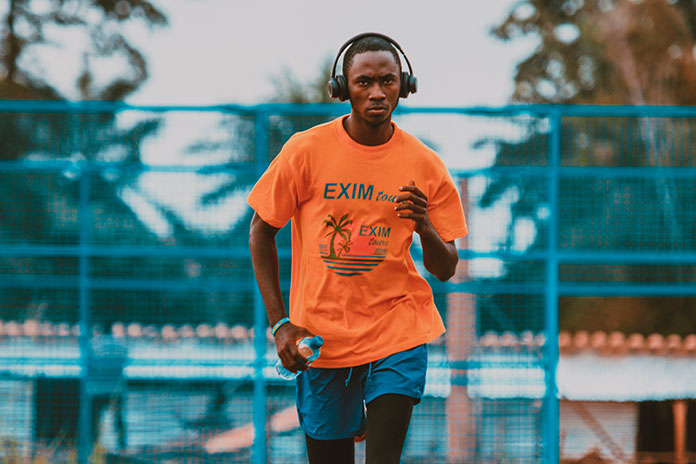There is a simple, legal, and side-effect-free way that can improve your sports performance. There’s no need to look very far: it’s simply about the music. Of course, no one waited for scientific studies to practice their sporting activity to the rhythm of a catchy playlist. However, the research results remain no less eloquent.
Music Increases Performance From The Warm-Up
In 2012, a study pointed to a significant improvement in average and maximum power during an effort following a warm-up to music. The latter also provides a second interesting effect: smoothing power variations according to different times of the day. In the absence of music, we measure lower power in the morning than in the afternoon. The study, therefore, encourages the use of music during the warm-up, mainly when the effort takes place in the morning.
The Effects Of Music While Practicing A Sporting Activity
Researchers have also been interested in the effects of music during sports practice. However, listening to music during exercise is limited since it is only applicable in a training context and when it does not pose a safety problem, such as running, walking, or cycling. During a competition, athletes do not control this parameter.
Music And Perception Of Effort
Several studies show that music reduces the feeling of difficulty of the effort. One of these studies examined the type of music and the athlete’s affinity for that music. These parameters do not influence the perception of effort: music effectively reduces the difficulty felt compared to a similar effort carried out in a silent environment. Researchers suggest that music acts as a distraction.
Also Read: How Dangerous Are Sports With Infections?
Music Appreciated By The Athlete Provides Better Performance
Other studies report an increased effect of increased performance when athletes choose or enjoy music. This phenomenon is observed both for music during warm-up and exercise.
Effects Of Music On Strength Efforts
A study compared bench press performance according to the affinity of the practitioners for the music listened to. The results were found to be significantly better in terms of explosiveness, average power, and maximum power when listening to music enjoyed by the athletes. The “Wingate Test” measures anaerobic capacity on a cycle ergometer.
It allows you to know the maximum power an athlete can produce and their ability to maintain it over time. Studies show improved performance when this test is performed on music. On the other hand, in this context, the choice of music only impacts motivation and the perception of the difficulty of the effort, but not physiological parameters or performance.
Effects Of Music On Endurance Efforts
The results are also favorably impacted in the case of endurance sports, such as cycling. No significant difference was observed in cardiac parameters. On the other hand, performances are generally improved, and the effort is perceived as more accessible when the athlete chooses or appreciates the music.
Music Also Improves Recovery
After exercise, many athletes resort to active recovery processes. These are low-intensity movements focused on the muscles impacted during exercise. The aim is to evacuate toxins near the muscles by stimulating lymphatic circulation. A study showed that music impacted this active recovery phase. We do not observe any difference in heart rate, but the music during recovery increases motivation to carry out these somewhat dull movements. Athletes who practice active recovery with music naturally perform more repetitions, which results in better evacuation of the lactic acid produced during exercise.
Rhythm Alone Influences Sport
Another study looked at the comparison between listening to music during recovery and listening to a rhythm alone. Recovery was more effective when listening to the rhythm alone, compared to silence, but less than when listening to music.
Also Read: Health Through Physical Activity And Sports


